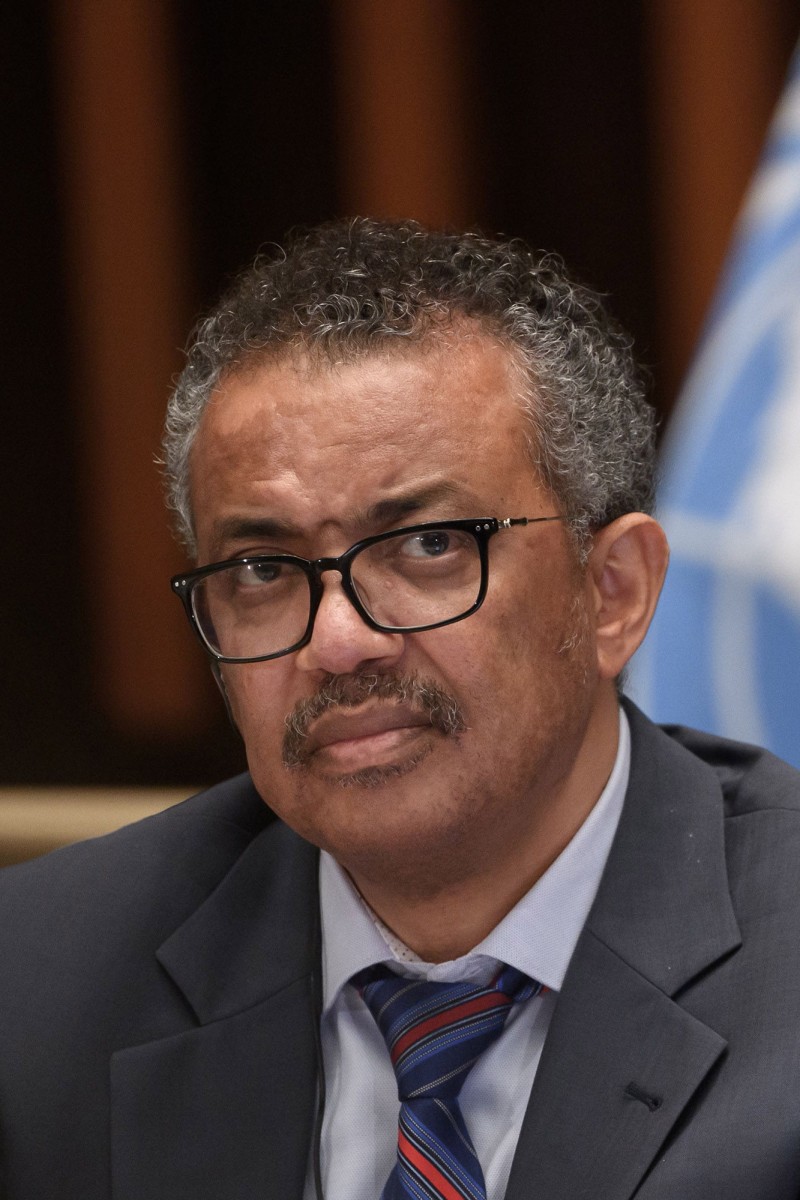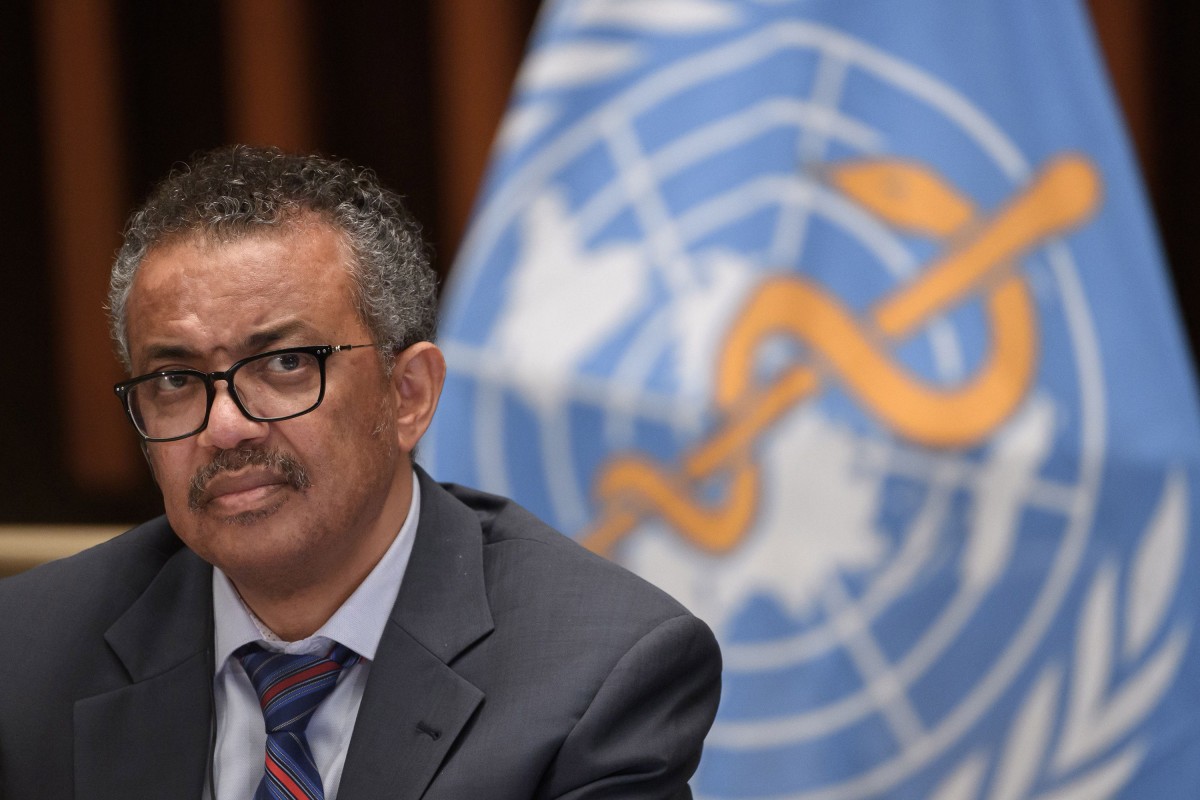
Coronavirus: World Health Organisation says to avoid Covid-19 booster shot until everyone gets first dose
- Chief Tedros Adhanom Ghebreyesus urged wealthy nations to donate vaccines to poorer countries, as many people in these nations have yet to have the jab
- While some immunocompromised individuals might need a third dose, the vaccines are still effective for healthy people
 World Health Organisation Director-General Tedros Adhanom Ghebreyesus said healthy people should avoid getting a booster shot of the vaccine until every is able to get their first dose. Photo: AFP/Getty Images/TNS
World Health Organisation Director-General Tedros Adhanom Ghebreyesus said healthy people should avoid getting a booster shot of the vaccine until every is able to get their first dose. Photo: AFP/Getty Images/TNSThe World Health Organisation (WHO) called for countries to avoid giving out extra Covid jabs until the end of the year, pointing to the millions worldwide who have yet to receive a single dose.
“I will not stay silent when the companies and countries that control the global supply of vaccines think the world’s poor should be satisfied with leftovers,” WHO chief Tedros Adhanom Ghebreyesus told journalists.
Speaking from WHO’s headquarters in Geneva, Tedros urged wealthy countries and vaccine makers to prioritise getting the first jabs to health workers and vulnerable populations in poorer nations over boosters.
The world may never reach herd immunity to Covid-19
“We do not want to see the widespread use of boosters for healthy people who are fully vaccinated,” he said.
The WHO called last month for a moratorium on Covid-19 vaccine booster shots until the end of September to address the drastic inequity in dose distribution between rich and poor nations.
But Tedros acknowledged Wednesday that there had been little change in the global situations since then.
“So today I am calling for an extension of the moratorium until at least the end of the year,” he said.
High-income countries had promised to donate more than one billion vaccine doses to poorer countries, he said - “but less than 15 per cent of those doses have materialised.
“We do not want any more promises,” he said. “We just want the vaccines.”
Unvaccinated people are twice as likely to be reinfected with Covid
Despite the call for a moratorium, some countries have been arguing for booster jabs not only for vulnerable people but also for the wider population, citing signs of waning vaccine effectiveness against the highly transmissive Delta variant.
The WHO has acknowledged that an additional dose could be needed for immunocompromised people, but stresses that for healthy people, the vaccines still seem very effective, especially in preventing severe disease.
“There is not a compelling case to move forward with a generalised recommendation for booster doses,” Kate O’Brien, the WHO’s vaccines chief, said at a news conference on Wednesday.
Can I get long Covid even if I’ve been vaccinated?
The UN health agency has set a global target of seeing every country vaccinate at least 10 per cent of its population by the end of this month, and at least 40 per cent by the end of this year.
It wants to see at least 70 per cent of the world’s population vaccinated by the middle of next year.
But Tedros lamented that while 90 per cent of wealthy countries have hit the 10-per cent mark, and more than 70 per cent have already reached 40-per cent, “not a single low-income country has reached either target”.
He expressed outrage at a statement by a pharmaceutical industry organisation that the world’s seven wealthiest nations, known as the G7, now had enough vaccines for all adults and teenagers - and to offer boosters to at-risk groups - and so the focus should shift to dose sharing.
“When I read this, I was appalled,” he said.
“In reality, manufacturers and high-income countries have long had the capacity to not only vaccinate their own priority groups, but to simultaneously support the vaccination of those same groups in all countries.”